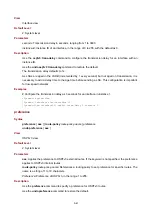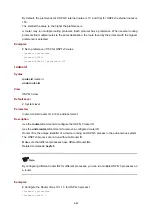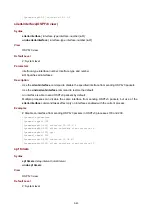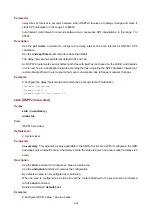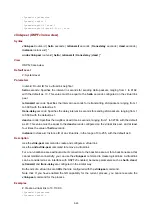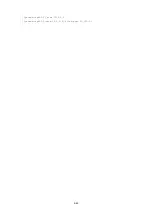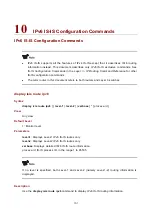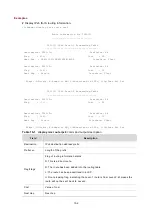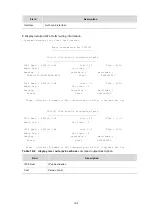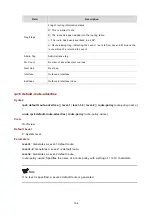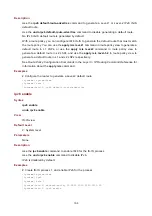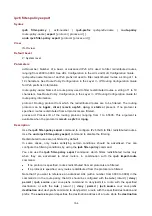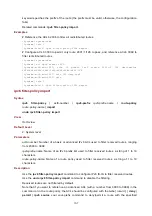
10-7
keyword specifies the prefix of the route (the prefix must be valid; otherwise, the configuration
fails).
Related commands:
ipv6 filter-policy import
.
Examples
# Reference the ACL6 2006 to filter all redistributed routes.
<Sysname> system-view
[Sysname] isis 1
[Sysname-isis-1] ipv6 filter-policy 2006 export
# Configure ACL6 3000 to permit only route 2001::1/128 to pass, and reference ACL6 3000 to
filter redistributed routes.
<Sysname> system-view
[Sysname] acl ipv6 number 3000
[Sysname-acl6-adv-3000] rule 10 permit ipv6 source 2001::1 128 destination
ffff:ffff:ffff:ffff:ffff:ffff:ffff:ffff 128
[Sysname-acl6-adv-3000] rule 100 deny ipv6
[Sysname-acl6-adv-3000] quit
[Sysname] isis 1
[Sysname-isis-1] ipv6 filter-policy 3000 export
ipv6 filter-policy import
Syntax
ipv6 filter-policy
{
acl6-number
|
ipv6-prefix
ipv6-prefix-name
|
route-policy
route-policy-name
}
import
undo ipv6 filter-policy
import
View
IS-IS view
Default Level
2: System level
Parameters
acl6-number
: Number of a basic or advanced IPv6 ACL used to filter received routes, ranging
from 2000 to 3999.
ipv6-prefix-name
: Name of an IPv6 prefix list used to filter received routes, a string of 1 to 19
characters.
route-policy-name
: Name of a route policy used to filter received routes, a string of 1 to 19
characters.
Description
Use the
ipv6 filter-policy import
command to configure IPv6 IS-IS to filter received routes.
Use the
undo ipv6 filter-policy import
command to disable the filtering.
Received routes are not filtered by default.
Note that if you want to reference an advanced ACL (with a number from 3000 to 3999) in the
command or in the route policy, the ACL should be configured with the
rule
[
rule-id
] {
deny
|
permit
}
ipv6 source
sour sour-prefix
command to deny/permit a route with the specified



